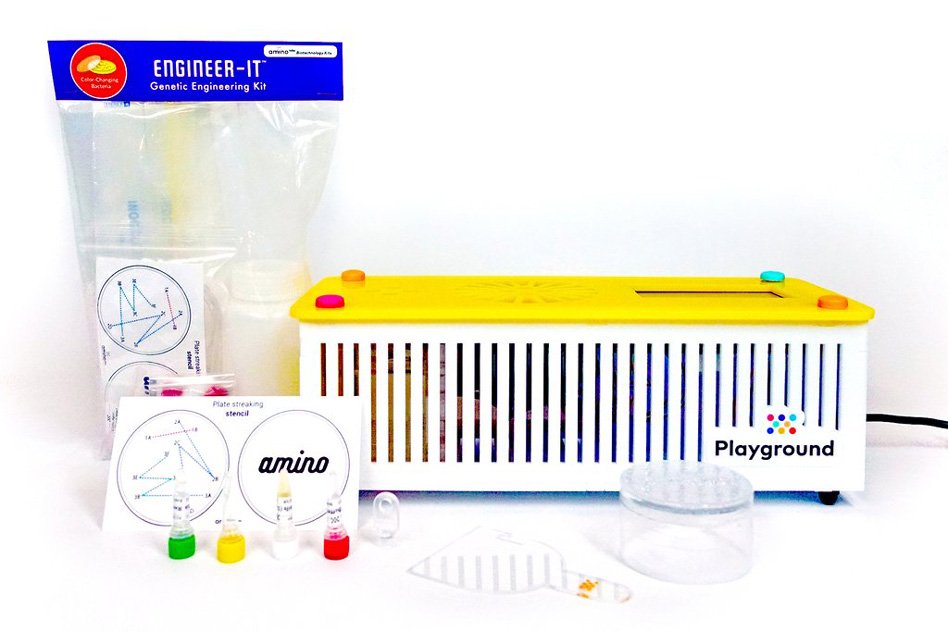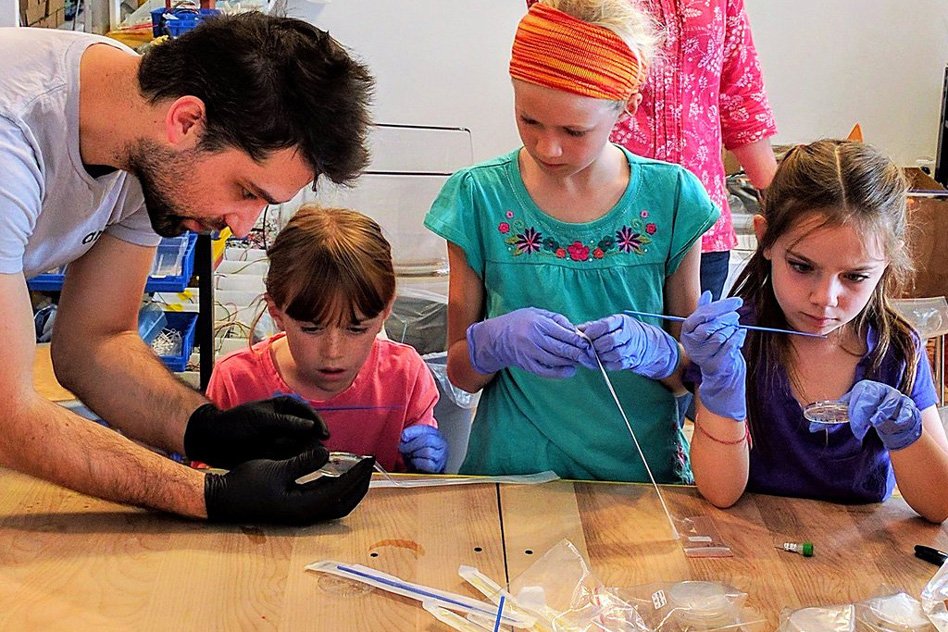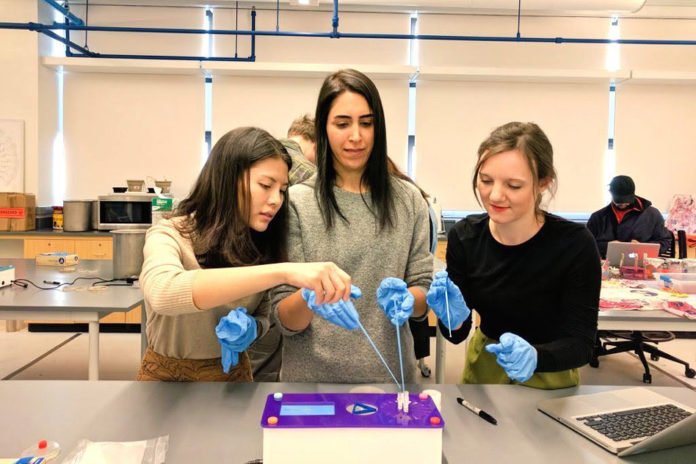Synthetic biology — infusing organisms with various DNA projects to influence them to perform new capacities. Research has yielded, for example, infections that assault hurtful microscopic organisms, yeasts that deliver biofuels, and microorganisms fit for distinguishing natural poisons.
It turns out as a powerful technology that will transform humanity this century. Now, MIT Media Lab spinout Amino Labs aims to bring synthetic biology to the world, with an all-in-one mini-lab kit. The kit can be used in labs and classrooms, and even right at home.
The kit involves all the necessary tools and materials for anyone, for example, bacteria that radiate different colors, to start experimenting with engineering microbes, anywhere.
Amino currently offers two full kits: the entry-level DNA Playground, which comes with everything to program and grow bacteria on a petri dish, and the more advanced Bio Explorer, which includes the same basic equipment as well as a few additional tools and a liquid bacteria culture.
Amino’s kits come with a machine, about the size of a shoe box, that contains a touchscreen thermostat and two temperature-based “stations” on the top. A cold station, which resembles a ventilation fan, reaches freezing temperatures to chill microbes or certain ingredients. The hot station, an indented circular plate, “heatshocks” the bacteria to allow the preprogrammed DNA to go through cell membranes. It also warms ingredients and incubates cells at various temperatures. Some machines come Wi-Fi-enabled, so users can track temperatures remotely and share their data.

The kits also come with “wetware,” meaning the biological agents, such as the preprogrammed DNA, bacteria, and liquid buffers. To experiment, users basically take the DNA tube (blue cap), mix it with the buffer (red cap), and pour the solution onto a petri dish, or liquid culture, and stick it on the hot station. Included software walks users through the experiments and explains the science.
Amino CEO Julie Legault SM ’15, a tech-savvy designer who co-founded the startup with Justin Pahara, a Cambridge University graduate.
Legault said, “Other synthetic-biology kits exist. But those are designed primarily for classrooms and require knowledgeable teachers. Amino’s kits — which some media have dubbed the “Easy-Bake Oven” for biology — are meant for the general public. That, of course, also benefits middle and high school teachers, who may not have the requisite knowledge.”

“In my high school, teachers would often get moved from gym class to science class and have to teach the material. With Amino’s kits, “you don’t have to know the science or technology. You just have to know how to use a touchscreen.”
The kits can also serve as a general platform for users to hack with their own DNA programs. Legault and Pahara are currently writing a book that walks users, step by step, through creating different DNA programs. By 2020, the startup hopes to offer more technologically advanced kits to these biohackers.
